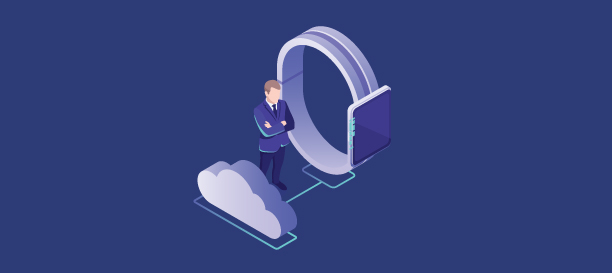
Hiring seasonal staff? Here are a few things to consider from the IT perspective
In many industries, there are seasonal spikes in business around specific times. For example, CPAs/Accounting firms, though busy all year, generally see a spike in business around the time of tax planning, IRS return filing, etc., the retail industry sees a boom around the Holiday Season, and so on. During such peak times, it is common practice in the industry to employ part-time staff to meet the immediate resource needs. While this works well in terms of costs and for handling additional work/client inflow, this poses a few challenges from the IT perspective. In this blog, we explore those challenges so you know what to watch out for before bringing part-time staff on board.
Security
When you are hiring someone part-time, security could be a concern. You or your HR person may have done a background check, but their risk score nevertheless remains much higher than permanent employees who are on your payroll. Trusting a temp worker with customer and business data is a risky choice.
Infrastructure
Having seasonal employees is a good solution to temporary spike in workload. But, there is still a need to provide your temps with the resources they need to perform their tasks efficiently. Computers, server space, internet and phone connectivity, all need to be made available to your temp workforce as well.
Lack of training
Your permanent employees will most likely have been trained in IT Security best practices, but what about your temps? When hiring short-term staff, SMBs and even bigger organizations rarely invest any time or resources in general training and induction. Usually brought in during the peak seasons, temps are expected to get going at the earliest. Often IT drills and security trainings have no place in such hurried schedules.
Collaboration needs
Often businesses hire seasonal staff from across the country or even the globe because it may offer cost savings. In such cases when the seasonal staff is working remotely, there is a need to ensure the work environment is seamless. High quality collaboration tools for file sharing and access and communication needs to be in place.
Having part-time or seasonal staff is an excellent solution to time-specific resource needs. However, for it to work as intended--smoothly and in-tandem with the work happening at your office, and without any untoward happenings--such as a security breach, businesses need to consider the aspects discussed above. A MSP will be able to help by managing them for you, in which case hiring temps will be all you need to think of.
Having part-time or seasonal staff is an excellent solution to time-specific resource needs. However, for it to work as intended--smoothly and in-tandem with the work happening at your office, and without any untoward happenings--such as a security breach, businesses need to consider the aspects discussed above. A MSP will be able to help by managing them for you, in which case hiring temps will be all you need to think of.


